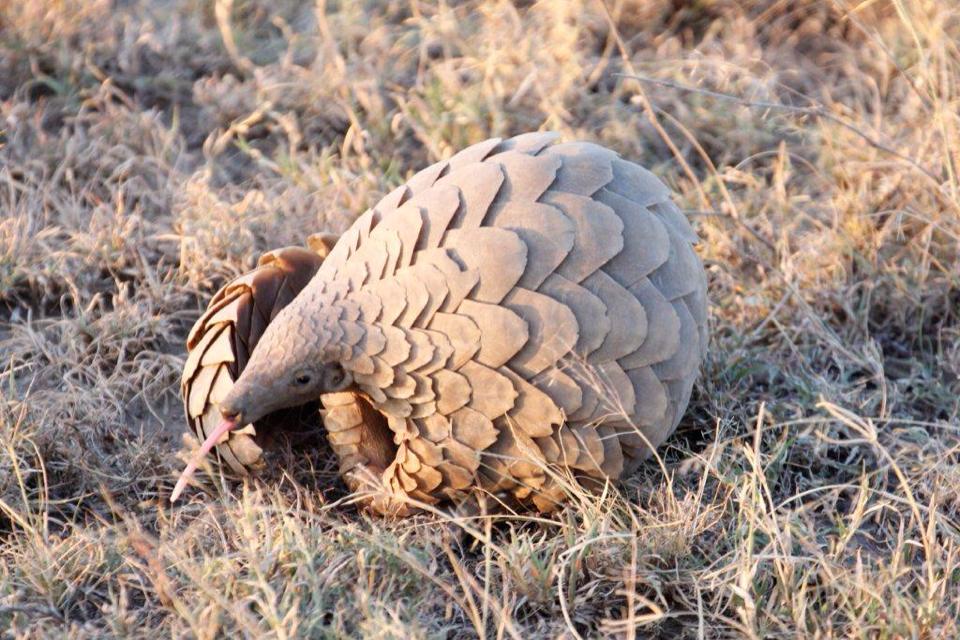10 Remarkable Facts about Pangolins
World Pangolin Day is an opportunity for pangolin enthusiasts to join together in raising awareness about these unique mammals — and their plight. Pangolin numbers are rapidly declining in Asia and Africa.
Our Top 10 Facts About The Pangolin
There are a total of 8 species of Pangolin in the world, 4 of which live exclusively in Africa, and the other 4 in Asia.
20% of a pangolin’s weight is compromised of scales – when threatened the pangolin rolls up tightly, using its scales to create an almost impenetrable barrier. The scales also have razor-sharp edges making them an additional weapon when the pangolin thrashes their tail.
Pangolins have no teeth. They “chew” using gravel and keratinous spines inside their stomach.
Baby pangolins travel around with their mothers by riding on the base of her tail.
Pangolins feed on ants and can consume 70 million ants per year.
Tens of thousands of wild pangolins are killed every year for trade in scales and flesh.
Pangolins have large, curved claws that are used for excavating ant and termite nests, as well as for pulling bark off trees and logs in search of insects.
A pangolin’s tongue can be up to more than 40cms longer than it’s body length!
The biggest threat to all pangolin species today is illegal, commercial hunting for human consumption. African species are largely hunted as bushmeat, as well as regional use of their scales and other body parts in traditional medicine and traditional rituals.
The illicit pangolin trade has become extremely lucrative. According to Environmental News Network, pangolins were worth around US $10 per kilo in the early 1990s and had soared to US$175 per kg by 2009. Wildlife Alliance’s Suwanna Gauntlett explained in an interview with Mongabay guest writer, Laurel Neme, that the going rate had reached a whopping US $200 per kilogram in 2011.

More Positive Impact Articles

Electric Vehicles: The Future Of East African Safari Travel?
12 January 2020October 2019 saw the arrival of our first electric, solar-powered safari vehi...

Its Our 15th Birthday: Celebrating 15 Years of Making a Genuine Difference
08 November 2019This year, we're celebrating our 15th birthday and commemorating 15 years of...

World Tourism Awards 2019: Asilia Recognised For Our Positive Impact
01 November 2019The World Tourism Awards acknowledge, reward, and celebrate excellence across...

Supersized Traditional Maasai Necklace
21 October 2019In 2009, we became a founding member of the Mara Naboisho Conservancy and sin...





